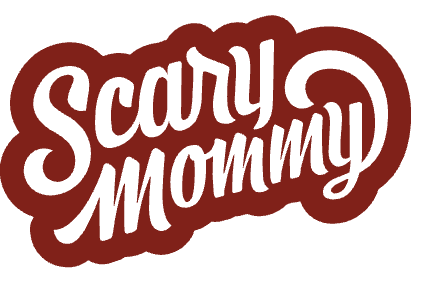As Seen In
Ciara Bogdanovic is a licensed psychotherapist based in Los Angeles specializing in Borderline Personality Disorder (BPD), Dialectical Behavior Therapy (DBT), trauma recovery, anxiety treatment, and emotional regulation. She has been featured in multiple media outlets as an expert on mental health, identity development, relationship dynamics, and coping with emotional overwhelm.
The 7 most surprising ways to strengthen family bonds in 2026, according to experts
She explains how learning a new skill together can strengthen family connection and bonding.
Why Protecting Your Energy Should Be A Top Goal In 2026 (And Beyond)
She describes how absorbing others’ stress leads to emotional depletion and encourages redirecting attention away from negative energy.
What is 'The Bird Theory' and does it work for LGBTQ+ couples, too?
She explains that the bird theory is about consistent attunement over time, not passing or failing individual interactions.
When mommy issues make you feel like a third wheel in your relationship
She discusses the difference between healthy closeness and enmeshment and how to navigate building better boundaries.
Before you try the viral ‘bird theory’ test, here’s what relationship experts want you to know
She explains misconceptions about the bird theory and the value of turning toward bids for connection.
Experts say this daily 30-minute or less technique stops your worries from running wild
She explains how a worry window helps contain and process worries so they don’t take over your day.
Should You Have a Kid-Free Space at Home?
She explores how a parents-only space helps adults recharge and show up more emotionally available for their family.
Psychologists say an effective tool to fight off anxiety can be found in the candy aisle
Ciara discusses distress tolerance skills.
Can You Stop Your Eldest Daughter From *Being* An Eldest Daughter?
She emphasizes how parents should share responsibilities equally to ease pressure on eldest daughters.
100 Anxiety Quotes to Help Calm Your Mind on Tough Days
She explores how to use quotes to help with anxiety.
Want Better Sleep and More Self-Awareness? Try This 5-Minute Habit
She discusses good sleep hygiene habits.
Why 'one last trip' is rarely the answer
She explains while vacations can feel like a fresh start by offering escape and fantasy, they don’t resolve deeper relationship issues and real, lasting change comes from small, consistent efforts over time.
“Good Problems” Are The Key To This Viral Gratitude Practice
She discusses the benefits of reframing life’s minor frustrations as “good problems” and shares how to practice this perspective shift.
Gift Giving Love Language: What It Means for Your Relationship
She discusses how to connect with a partner whose love language is gift giving.
Say This to Someone Whose Love Language is Words of Affirmation
She discusses how to connect with a partner whose love language is words of affirmation.
Making Peace With Childhood Trauma: Avenues To Help Heal
She explores how childhood trauma may affect you in adulthood.
The “One Night Relationship” Theory Could Explain Why You Got Ghosted
She talks about intense intimacy during your first date and why that might lead to ghosting.
How To Take The Awkwardness Out Of Making Friends In Your 30s
She identifies how volunteering can be a great way to connect and make friends.
3 Experts Share How to Be Independent in a Relationship
She explores how to be maintain your independent sense of self while in a partnership.
My Partner Wants To Try Something Different In The Bedroom. I'm Afraid It's A Deal-Breaker.
She addresses the concept of “sleep divorce” and how couples can support their relationship while sleeping in different rooms.
Don’t Like Journaling? Try These Therapist-Approved Alternatives Instead
She explores different ways to self soothe and reduce stress.
There’s a Fine Line Between Positivity and Brightsiding—Here’s How to Spot It
She explains that brightsiding, or forced positivity, often stems from discomfort and invalidates real emotions.
Who gets the friends in a divorce? For many, the answer stings.
She discusses how to navigate friendships during a divorce.
She discusses ways to address time blindness.
50 Questions to Ask Your Parents That’ll Bring You Closer Than Ever
She shares thoughtful questions designed to deepen a child-parent relationship.
ChatGPT is the digital best friend you didn’t know you needed
She discusses how to use Chat GPT thoughtfully and warns of potential issues.
I Kept a “Reverse Gratitude Journal” for a Week, and It Totally Transformed My Days
She explores the benefits of a contribution journal.
'Not Today, Becky': Could This Reese Witherspoon-Approved Technique Boost Your Mood?
She describes the technique of cognitive defusion and how it decreases emotional distress.
Don’t let a messy house stop you from hosting
She discusses how to calm your anxiety about a messy home, and encourages focusing on connection over perfection when hosting.
Exploring Life & Business with Ciara Bogdanovic of Sagebrush Psychotherapy
An interview about Sagebrush and my background.
Exploring The Perks Of Solitude
She explores the difference between solitude and isolation and the benefits of solitude.
How Good Is ChatGPT at Giving Life Advice, Really?
She discusses the imperfections of ChatGPT and the importance of good mental health care with a professional.
If Journaling Doesn’t Work for You, Try These 3 Stress-Relief Tips Instead
She discusses why journaling doesn’t work for some people and what to do for self care.
RFK Jr. research agenda draws flak from autism advocates
She pushes back against pathologizing autism, explaining that therapy should focus on support and self-understanding, not “fixing” neurodivergent traits.
15 Bedroom Habits That Are Subtle Red Flags Your Relationship Won’t Last
She discusses emotional vulnerability in intimacy.
SEX FILES: Why contempt -- not cheating or money -- is the real relationship killer
She explores how contempt erodes relationships.
How Do I Deal With an Avoidant Friend?
She explains how avoidant attachment can show up in friendships and offers tools for setting boundaries, managing expectations, and staying grounded when connection feels inconsistent.
Laid-Off or Let Go? Here Are 7 Immediate Steps for Your Career, Finances and Personal Growth
She encourages readers to reframe rejection with humor and self-compassion, using creative rituals to stay emotionally resilient during a job search.
The Rise of ChatGPT Therapy and Our Constant Need for Feedback
She discusses that while AI tools like ChatGPT can offer quick validation, they may inadvertently reinforce harmful patterns such as compulsive reassurance-seeking and hinder emotional growth.
Borderline Personality Disorder (BPD) vs. Schizophrenia: What’s the Difference?
Ciara explains how BPD differs from schizophrenia.
Need to Have a Tough Conversation? Take a Walk
Drawing from her EMDR background and expertise in relationship dynamics, she explains how movement can support emotional processing during hard conversations. She shares how walking side-by-side can lower defenses, regulate the nervous system, and create a safer space for connection and vulnerability.
She uses her expertise in mindfulness and anxiety to highlight how the pressure to stay constantly productive can negatively impact mental health. She shares how embracing doing nothing can support nervous system regulation and emotional resilience, especially for clients struggling with burnout and anxiety.



































